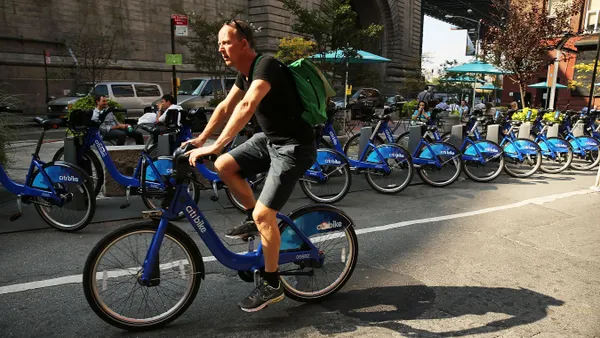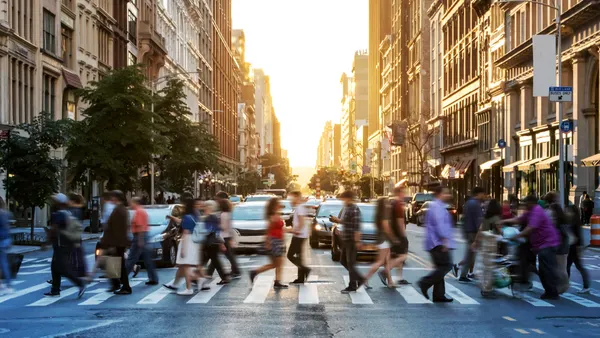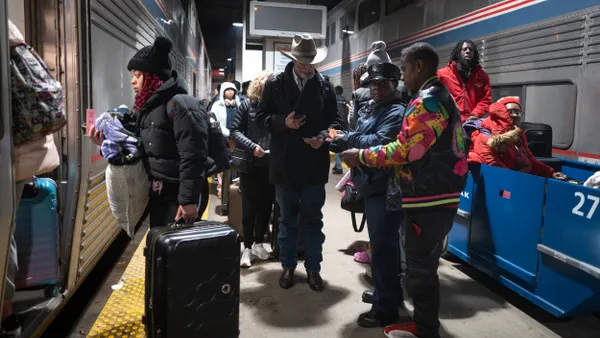Dive Brief:
- Singapore's Land Transport Authority will require that all bike-share services apply for a license by July 7 to continue operations, and that all services to have a geofencing feature by the end of this year, according to the South China Morning Post.
- The geofencing technology will use GPS and radio frequency identification technology (RFID) to require riders to leave their bikes in designated parking areas.
- Local operator oBike already uses geofencing and is prepared to cooperate with the new requirements. Under an agreement with the city, oBike’s system has more than 1,000 parking zones and notifies users if they leave a bike outside of the designated areas. Other operators, including ofo and Mobike, say they will apply for a new license and work on RFID technology.
Dive Insight:
The popularity of dockless bike-sharing in Asian cities has led to them being overrun by bikes, and many Chinese cities have had to limit companies from putting any new bikes on the streets to eliminate clutter. That’s a problem that’s spreading to U.S. cities as well, as dockless bikes and scooters are left on sidewalks, streets, alleyways and even in trees. Some cities are exploring “lock-to” rules that would require the vehicles to lock to racks, or are just outright banning them.
Geofencing could offer a solution, limiting where bikes and scooters can be left and helping regulators avoid abandoned vehicles. Given that many companies that will be regulated under Singapore’s rules also operate in the U.S. — like ofo and Mobike — the approach could spread overseas if it proves successful. Although dockless vehicles have GPS to allow users and operators to retrieve them, geofencing has not quite been adopted in the U.S. However, that could also blunt some of the freedom the companies advertise, cracking the “first mile, last mile” problem by letting riders go directly to their doors.
Cities have kicked around the geofencing idea for ride-sharing companies, restricting certain areas for pickups and dropoffs to limit crowding on busy streets. Lyft adopted a geofencing pilot in San Francisco in March along portions of a street in the Mission District, and cities like Washington, DC and Ft. Lauderdale, FL may use GPS to create ride-share zones.









